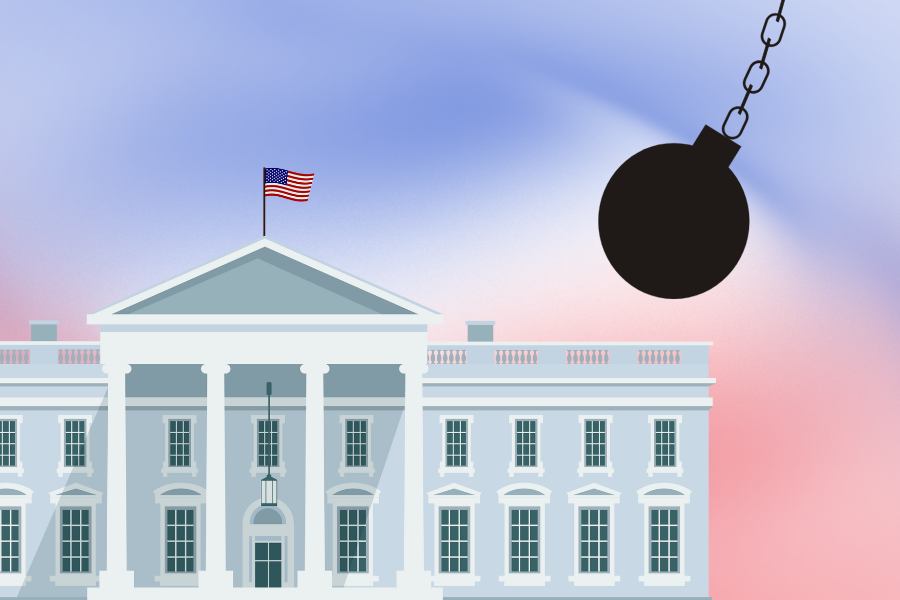The Washington Post’s owner, Jeff Bezos, forced the paper’s editorial board to scrap its already written endorsement of Vice President Kamala Harris for president in the 2024 election. This action has sent shockwaves around the news industry and encouraged copycats like the Los Angeles Times to do the same.
These are classic examples of overreach by a newspaper’s owner and publisher.
The opinion section of a newspaper is exactly what the title implies, a section featuring the opinion of the writers. In traditional American news organizations like The New York Times, the paper’s opinion section is completely editorially independent from the newsroom of the paper where the traditional news reporting is done.
“The Opinion department is independent of the Times newsroom, with a separate mission but the same standards for fact. The first anyone in the newsroom learned of the board’s editorial about the impeachment inquiry into President Trump, for instance, was when we posted it to The Times’s website,” James Bennet said in an article for the New York Times.
The head of the editorial board and another editorial board member resigned in protest of the decision to block the endorsement. This block by Bezos didn’t stop all the writers at The Post from endorsing Harris, one self-described humor writer prevailed.
“But if I were the paper, I would be a little embarrassed that it has fallen to me, the humor columnist, to make our presidential endorsement. I will spare you the suspense: I am endorsing Kamala Harris for president because I like elections and want to keep having them,” said Alexandra Petri in an article for The Washington Post opinion section.
The capitulation of The Post and other papers to their billionaire owners is part of the issue contributing to the decline of the American journalistic tradition. One of the other reasons papers are turning to these billionaire owners is simply a problem of cost.
“Journalism is expensive. And the news industry is in crisis in part because not enough people are willing to pay for it. Woodward and Bernstein reported on Watergate for two years before Nixon resigned; while they did, subscribers helped pay their salaries, as well as the salaries of the editors and production staff who worked to bring their stories to the public,” said Ellen Cushing in an article published in The Atlantic.
It seems as though billionaire owners of newspapers are not in the business of providing an essential public service, but they are trying to squeeze as much value out of papers as they can before they fall completely out of favor with readers.
What has started this phenomenon is, simply put, people simply are not paying for journalism anymore. People expect to receive the work for free and do not feel the need to support the papers they once lauded as heroes of their times, think “All The President’s Men” and “Spotlight.”
“But their [subscription] numbers keep dwindling. This is why, in recent years, some news organizations have come to rely on the largesse of individual billionaires. The people whom American journalism institutions were built to serve—average readers—are no longer paying the check,” said Cushing.
These dwindling subscribers can see the decline of the great news organizations in this country. Over 65 million Americans live in places with a single, or no local newspaper. In these communities, political division has dramatically increased. State houses no longer have dedicated reporters covering them and voter turnout has declined sharply, according to The Brookings Institution.
One of the only papers that has seemed to avoid the fate of a billionaire “savior” is The New York Times, which has built a base of over 10 million subscribers. The Times has focused on bringing readers directly to their products and destinations, rather than relying on others for distribution.
The New York Times Company is a controlled public company. The company is controlled by the Sulzberger Family, and its current Publisher A.G. Sulzberger has been a model newspaper chairman during his tenure at the Times. Sulzberger is also a career Journalist who worked his way up to the times just like many of the reporters at the Times. It is not Sulzberger’s role to control the coverage of the paper or to make editorial decisions, that role is left to the people of the newsroom and the editorial board at the Times, as it always should be.
People can not rely on social media posts through the likes of TikTok and Facebook to get their news but increasingly people are turning to these types of sources.
Jeff Bezos wrote an opinion essay for The Washington Post where he said that people no longer trust journalists. He said that they listen to personality’s opinion podcasts and they trust social media posts from unverified sources with less scruples than traditional news organizations.
“Increasingly we talk only to a certain elite. More and more, we talk to ourselves,” said Bezos.
These publications are being threatened by their owners, threatened by people in power and threatened by fleeing subscribers. We can not live in a world where the only people reporting the news are television news reporters and whoever may be lucky enough to continue working at The New York Times.
Papers must remain editorially independent from their owners to remain credible and trustworthy in the eyes of the reading public. Anyone who wants to buy a newspaper must realize that they are not buying a simple goods business, but they are purchasing a public service and it is their duty to shepherd that service and keep it running well into the future with the full faith and trust of the reading public.









